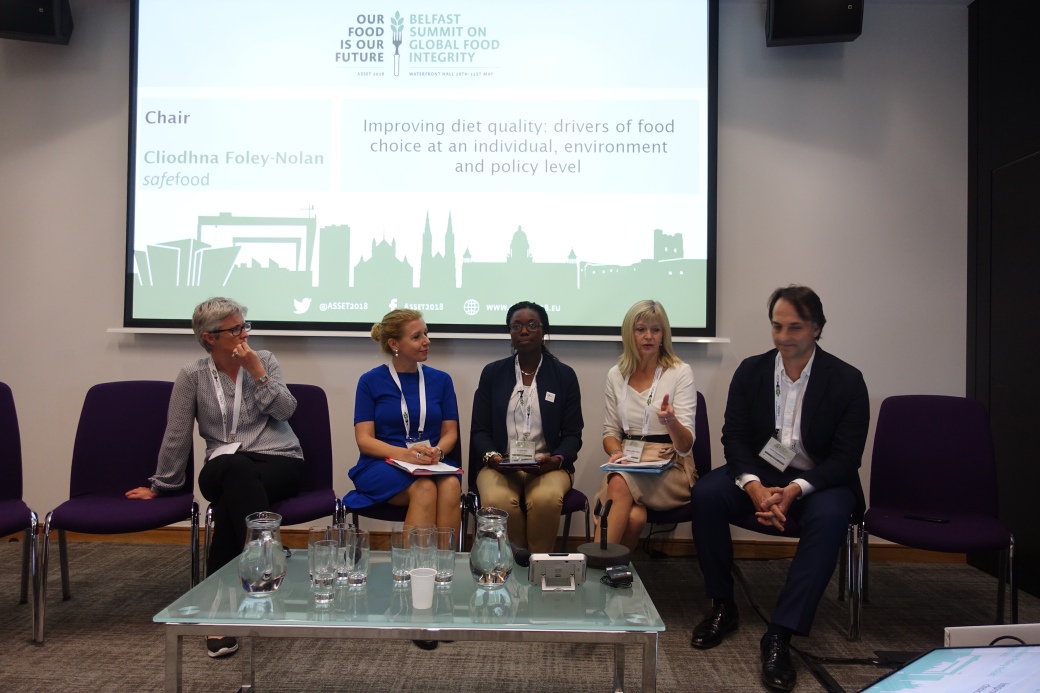In May 2018, I attended the Global Summit on global food integrity and spoke in the improving diet panel.
We will not have good security without food and nutrition security”
Dr John Bell opened the summit emphasising the interconnectedness of our food system, it needs to able to provide nutritious, safe food for a growing population and be sustainably produced.
The scene was now set and the importance of a multidisciplinary approach to fixing our broken food system had been declared and the following themes discussed.
Deliberate contamination of food
The threat from pathogens to the food system
Human exposure to chemical cocktails in food
Delivering the nutritional needs for the 21st Century Global population
Predictable Surprises
Dr Amy Kircher from the Food Protection and Defence Institute opened the session on the deliberate contamination of foods by stating that predictable surprises are disrupting our food system. We eat from a global plate which makes the food chain a complex system with vulnerable points for terrorism, sabotage and economically motivated adulteration to take place. Opportunities for crime is usually predictable, for example, a regional crop shortage or a disgruntled employee. Internationally recognised definitions of these crimes are needed if agencies from different countries are to be able to collaborate on investigations. The key take home message was that data monitoring and analysis is essential to look at trends and see where predictable surprises may take place.
The theme of a common technical language was carried over from food fraud into the threat from pathogens to the food system. Lack of ownership was identified as a problem along with the need to have an international system to manage the responses.
The subject would be incomplete without a mention of blockchain and indeed the claims about blockchain’s ability to deliver traceability were said to be inflated. The rapporteurs conclusions from the plenary sessions were that there has to be shared equity in the problem and that is important to develop robust monitoring systems so that information can be quickly disseminated
From Farm to Flush
The link between the production of animals for food and the human health of those who consume it was important for this theme, hence From Farm to Flush.
The rapporteurs concluded that the routine use of antibiotics outside the EU to grow healthy animals faster needs to stop. Human misuse of these drugs is also an issue and by 2050 anti-biotics deaths will have reached 10 million globally, costing £66 trillion.
Developing countries carry the biggest burden of the consequences of anti-microbial resistance and a One Health system needs to be part of the solution where a global monitoring system for food borne illness and anti-microbial resistance is set up.

Genes are like a hand of cards in poker…….
The big challenges of Type 2 diabetes, challenging food environment, micronutrient sub-optimal intake in the UK and many parts of the world, malnutrition, food insecurity and an ageing population were all covered by the theme delivering the nutritional needs of the 21st century.
